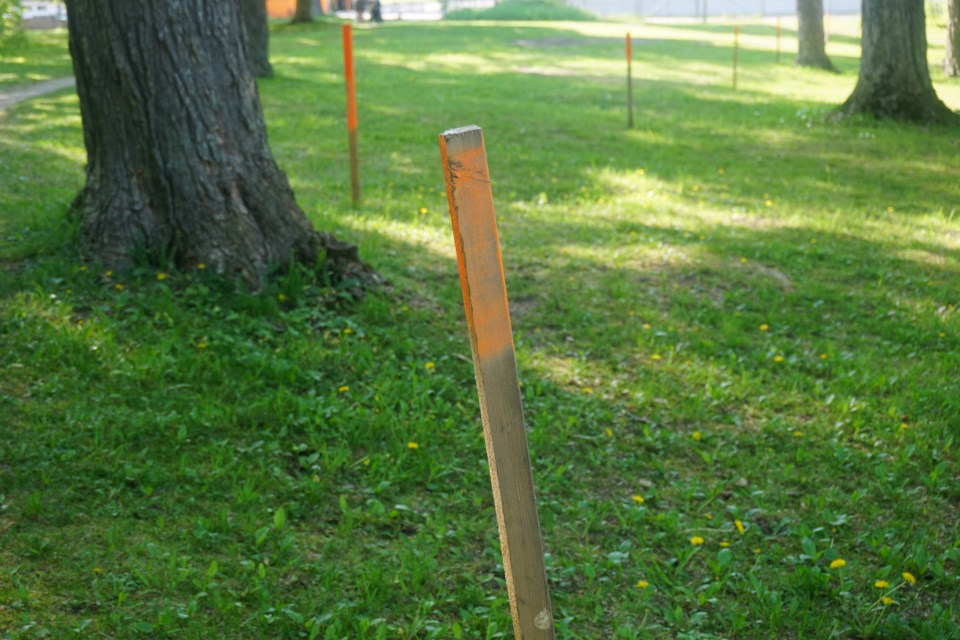Wondering what the sudden appearance of wooden stakes are all about in local parks and greenspaces?
Well, they’re part of Midland’s move to being designated as a Bee City.
“The stakes have been placed out at all Bee City no-mow zones across the town including several at Little Lake Park,” Dylan Flannery, the town’s operations manager, told MidlandToday.
“This is first to help maintenance staff ensure they are following the correct no-mow zones as this begins the initial transition towards developing pollinator-friendly zones within several parklands.”
And with World Bee Day occurring Thursday, the need to protect pollinators like bees becomes more essential with statistics noting that three out of four crops across the globe producing fruits, or seeds for use as human food depend, at least in part, on bees and other pollinators.
Flannery said there will also be an educational component to the municipality’s entry into the Bee City program.
“We are waiting for signage to arrive that will go up at each location to then help identify and educate the public on the purpose and goals of the program,” Flannery said.
World Bee Day, meanwhile, is a United Nations’ sanctioned event that occurs each May 20 as a way to shine the spotlight on bees and other pollinators, such as butterflies, bats and hummingbirds, which are increasingly under threat from human activities.
“Pollination is, however, a fundamental process for the survival of our ecosystems,” the UN noted on its website. “Nearly 90% of the world’s wild flowering plant species depend, entirely, or at least in part, on animal pollination, along with more than 75% of the world’s food crops and 35% of global agricultural land.
“Not only do pollinators contribute directly to food security, but they are key to conserving biodiversity.”
The town, meanwhile, says that by allowing specific areas of municipally-owned land to grow, it’s creating sustainable landscapes, saving energy, reducing greenhouse gas emissions (GHGs) and limiting noise from mowers.
As well, it notes that no-mow zones reduce storm-water runoff, protect water quality and create a safe place for bees, butterflies and other pollinators.
As a member of the sustainability committee which prepared the town’s climate plan, Coun. Jonathan Main said he was keen for Midland to join the Bee City Canada program.
“Municipalities influence up to half of Canada’s GHGs, making local action key to the success of the climate fight,” Main said.
“This effort helps to mitigate the town’s carbon emissions by developing green and vibrant public spaces that protect and expand our pollinator habitat and biodiversity.”
